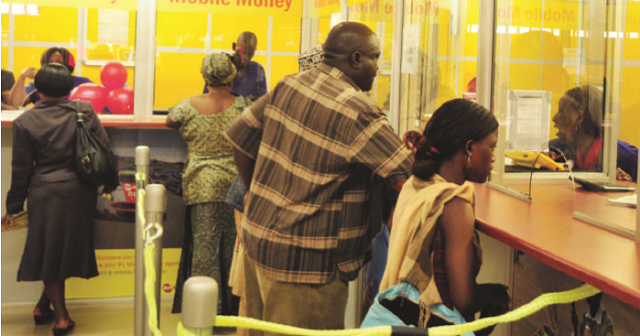
To him, these informal businesses are constrained by a raft of problems including; scarcity of business and technical skills, high costs of inputs and often volatile market conditions.
Above all, Mutebile added, that the argument that micro loans alone can transform the fortunes of household enterprises “does not hold water”.
“It is important to be realistic about what can be expected from the financial sector,” he said.
He said attitudes towards borrowing are poor throughout Ugandan society.
“Loans meant to fund business expenses are sometimes diverted to other personal expenses or speculative purposes. And the culture of loan repayment is extremely weak.
But Constance Kekihembo, CEO Uganda Women Entrepreneurs Association Ltd, says Ugandans actually fear borrowing.
“The fear of losing their hard earned money among Ugandans is real,” she says.
As a result, more and more Ugandans are shunning borrowing from banks. At the time of the World Bank survey in 2015, about 35% of adults had active loans; a decrease from 44% in 2009.
In 2015 only 13% of households used formal credit from bank and non-bank providers while up to 65% of the population did not have access to formal credit.
Instead, most borrowing goes on in informal mechanisms.
Gideon Badagawa, the executive director of the Private Sector Foundation Uganda (PSFU) says this is partly because banks have not helped customers understand their obligations.
“Much as banks are essentially here to make money, it is important for them to understand their development role which in effect means they have to work with the small businesses,” he said.
Mutebile, however, agreed with the World Bank on some points, including that the finance sector faces major challenges mainly because of the high cost of doing business.
Financial sector grows
True, Uganda’s financial sector has expanded in recent years with more than half of the adult population accessing formal and regulated financial services, according to the latest World Bank Economic update.
The eighth update released on Feb.7 in Kampala says up to eight million adult Ugandans now own a bank account, a figure which pushes the share of the adult population with access to financial services to 52% up from 44% in 2014, 20% in 2011, and 28% in 2009.
But Uganda is a long way off. In Kenya, for example, 75% of adults have a bank account.
Uganda has also seen growth in the number of financial institutions.
There are now close to 24 banks in Uganda, four credit institutions, five micro-finance depository institutions and 1,900 registered SACCOs. There is also the National Social Security Fund (NSSF), 60 other private retirement benefits schemes, and seven mobile money providers.
There are also up to 70 micro-finance institutions, 200 registered money lenders, 22 non-life insurance companies, and seven life insurance companies.
But according to the World Bank report, the real game changer in the financial services sector has been mobile money.
There are up to seven million active mobile money users in the country. That, according to Calvo, makes Uganda the country with the highest number of registered mobile money accounts per adult, not just in Africa, but in the world.
“What is particularly more encouraging,” says Calvo, “is that mobile money tends to benefit groups that tend to be more financially excluded than others: women, rural households, and hard-to-reach populations as well as informal and small firms”.
She said access to an account to make financial transactions is the first step toward financial inclusion since it allows people to save money and send and receive payments.
“Once you have an account, you’re more likely to use other financial services, such as credit and insurance, to start and expand businesses, and invest in education or health,” she said.
****
editor@independent.co.ug
 The Independent Uganda: You get the Truth we Pay the Price
The Independent Uganda: You get the Truth we Pay the Price



